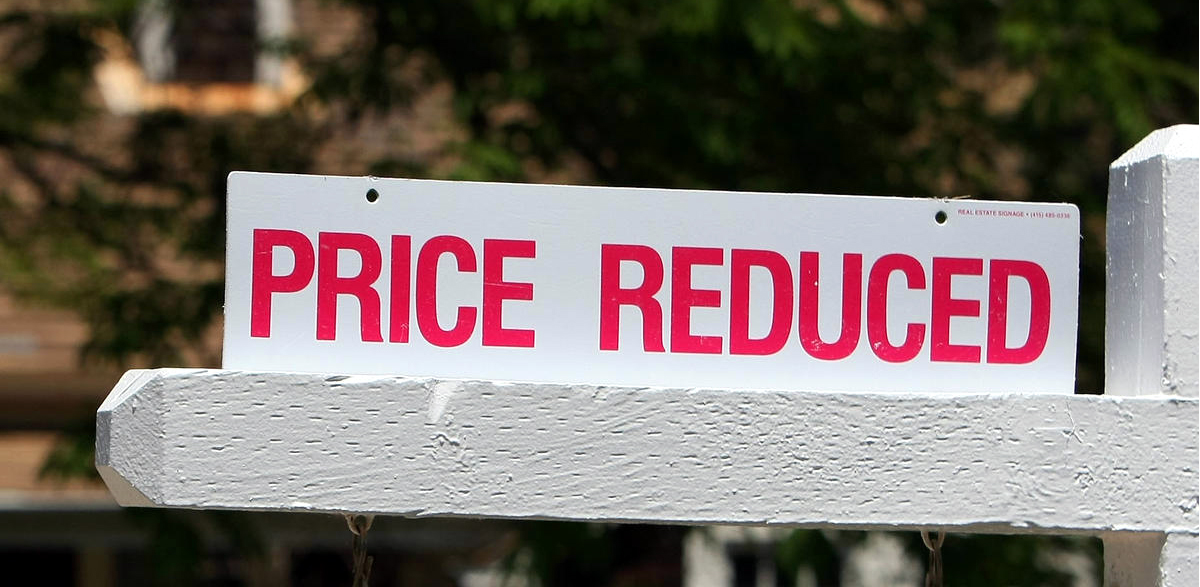
Executive order to alter HARP
President Obama announced today what is being dubbed the “we can’t wait plan,” introducing the next phase of the Home Affordable Refinance Program (HARP), altering the current program without Congressional approval, saying that “we can’t wait.” With persistent instability in a struggling housing market, two main camps have formed- the “let the market tank and rebuild itself naturally” camp versus the “government must help homeowners keep their houses,” both of which are unrelenting.
The President’s Jobs Act has not been quite the home run some may have anticipated, and without stability in the jobs market, there will be no stability in the housing market, therefore Obama is being pressured to make moves to stabilize housing and his most current move is to amend HARP through an executive order.
Many support the new HARP plan while critics poke holes in the plan that aims to strengthen the housing sector.
Revamping HARP
The President is changing HARP to help homeowners that are current (and owe more on their mortgage than their home is worth) to refinance their mortgage to take advantage of the historically low mortgage rates. Prior to this new plan, HARP was restricted to borrowers whose mortgages were less than 25 percent over value.
Since the spring of 2009, HARP has only helped 822,000 borrowers despite the original promise of helping five million homeowners. The Administration says the new plan will help one million borrowers, while some economists say it could make up to 1.6 million eligible for assistance. Critics remain skeptical given HARP’s track record alongside the abysmal performance of other government programs for housing like HAMP.
Details of the new phase of HARP
The new plan will eliminate fees and if an automated valuation model (AVM) from Fannie Mae or Freddie Mac is available, no new appraisal will be required, which raises red flags for many in the industry. Additionally, loan amounts must top 80 percent of its current market value (which is determined by Fannie Mae or Freddie Mac).
The effort does have strong bipartisan support, however, noting that it is a legitimate effort to help homeowners who are actually paying their mortgages. The new plan applies only to borrowers who have not made a late payment in the last six months and cannot have made more than one late payment in the last 12 months.
The current Administration says the average savings per year will be $2,500 per household, although Moody’s notes that on a $150,000 loan, the savings will average $1,600. Some are calling this an economic stimulus package, theorizing that with homeowners saving hundreds of dollars each month, they will put that money back into the economy in the form of retail and similar spending.
This executive order extends HARP out 18 months to December 31, 2013, but what most traditional news outlets have missed is that all of these new adjustments only apply to loans backed by Fannie Mae or Freddie Mac that were taken prior to May 31, 2009.
Marginal aide for the housing sector
Economic stimulus or not, many point out that the amount of homeowners that are eligible for help under this new plan is marginal at best given that over 3.5 million homeowners are seriously delinquent, more than four months behind. HARP does not address this issue which some call the most critical piece of the housing puzzle.
Banks that have been servicing government programs like HARP and HAMP have complained that the risk is too high, the red tape too deep, and outside investigations have found servicers to be careless (frequently losing applications and paperwork) and difficult (altering internal rules as they go along). This plan reduces the bank’s liability to repurchase the loans if borrowers default, which supporters say will incentivize the banks to participate in the non-mandatory program. Critics note that if banks aren’t liable for defaults, the taxpayers are, which puts America back in the same sticky situation the Administration is allegedly attempting to repair.
MBA and NAMB optimistic, NAHB cautiously so
Various industry associations have weighed in on Obama’s announcement, however, as of publication, the National Association of Realtors (NAR) has not. It seems that the lending associations are wildly in support of the measures while home builders (and we suspect other industry trade associations that are consumer-oriented) are more cautious with their optimism, mostly noting that something is better than nothing.
“The mortgage industry welcomes these changes designed to help more underwater borrowers who are current on their mortgages refinance at today’s historically low interest rates,” said David H. Stevens, president and chief executive officer of the Mortgage Bankers Association (MBA). “Not only will these changes allow more borrowers to qualify, but they will streamline the process and reduce the cost to borrowers and should lessen risk for Fannie Mae and Freddie Mac. Lenders are particularly gratified that the refinements will provide relief from some representations and warranties that lenders face when originating new loans. These changes alone should encourage lenders to more actively participate in HARP.”
“These enhancements will not only help responsible homeowners who have been unable to refinance because the equity in their home has disappeared, but it will also help spur the economy by allowing homeowners to reduce their monthly payment, thus allowing homeowners to spend the extra savings on much-need household expenses to spur the economy,” said National Association of Mortgage Brokers (NAMB) President Michael D’Alonzo. “NAMB applauds the Obama Administration and the FHFA for realizing this program had limited success to the consumer and making the necessary changes so that the average American homeowner who pays their mortgage on time but is underwater can benefit.”
Bob Nielsen, chairman of the National Association of Home Builders (NAHB) said, “”However, for the many families who have fallen behind in their payments because of the weak job market, the changes to HARP will have no benefit. HARP is only open to mortgage borrowers who have remained current with their payments. Clearly, additional policy initiatives are urgently needed to prevent foreclosures and deal with the inventory of foreclosed homes. In addition, it is essential to address overly restrictive mortgage lending standards, inappropriate credit limitations on home builders and a broken appraisal system that is contributing to housing price instability. All of these factors are detrimental to the full-scale housing recovery we need to rally consumers and get a disappointing economic recovery moving forward.”
Tara Steele is the News Director at The American Genius, covering entrepreneur, real estate, technology news and everything in between. If you'd like to reach Tara with a question, comment, press release or hot news tip, simply click the link below.









































Pingback: Volume of mortgages refinanced under HARP up nine percent - AGBeat